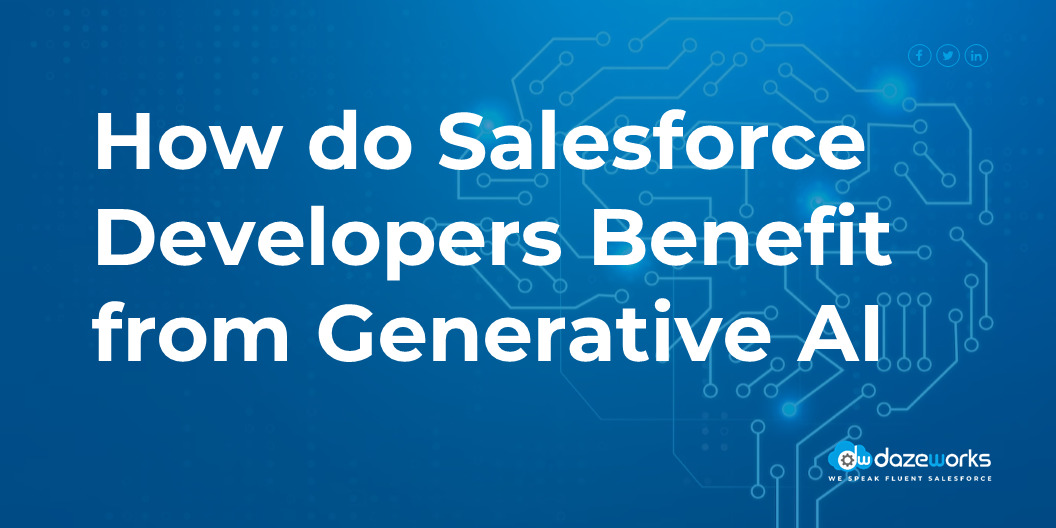
How do Salesforce Developers Benefit from Generative AI?
minutes read
AI has been a core aspect of Salesforce and the introduction of Einstein GPT has further reinforced this fact. Einstein GPT is a generative AI dedicated to the CRM that personalizes sales emails and auto-generates codes among a plethora of other things. But is Einstein GPT’s potential limited to sales, marketing, and customer service? How do Salesforce developers benefit from it? In this blog, we explore answers to these questions.

What is Generative AI?
Generative AI is a branch of artificial intelligence that focuses on generating models that can create new content, such as images, text, music, or even video like what it has been trained on. Contrary to conventional AI models that depend on familiar patterns, generative AI models learn from large datasets and then generate new content based on that learning.
These models leverage techniques like deep learning and neural networks to identify, comprehend and capture patterns in the training data. These models learn the underlying patterns and correlations in the data, allowing them to generate new examples that resemble the original data.
How Can Generative AI Benefit Salesforce Developers?
Data Generation
Generative AI models can generate synthetic data that closely resembles real customer or sales data. This is useful for testing and developing Salesforce applications without compromising sensitive data privacy or security. Generated data can be used for various purposes, such as load testing, creating realistic demo environments, or training machine learning models.
Natural Language Processing (NLP)
Generative AI models can be applied to NLP tasks, such as sentiment analysis, language translation, or chatbot interactions. By leveraging NLP models, Salesforce developers can enhance customer support processes, automate interactions, and gain insights from unstructured text data like emails, chat logs, or social media conversations.
Intelligent Automation
Generative AI can automate repetitive and time-consuming tasks within the Salesforce platform. Developers can train models to perform tasks like data entry, lead routing, opportunity scoring, or generating personalized email content. By automating these tasks, developers can increase efficiency, reduce manual effort, and focus on more strategic activities.
Predictive Analytics
Generative AI models can enable predictive analytics within Salesforce applications. By analyzing historical customer data, these models can make predictions about future sales trends, customer behavior, or lead conversion rates. This helps Salesforce developers optimize sales strategies, improve forecasting accuracy, and identify potential areas for growth.
Recommendation Systems
Generative AI can power recommendation systems that provide personalized product or content suggestions to customers. Developers can build algorithms that recommend relevant products or services by analyzing customer preferences, purchase history, and behavior patterns. These recommendation systems enhance the customer experience, increase sales, and foster customer loyalty.
Data Augmentation
Generative AI can be used to augment existing datasets by generating additional synthetic samples. This is particularly useful when training machine learning models with limited data. Developers can improve model performance, increase generalization, and handle data imbalances by generating new samples.
Generative AI has the capabilities to revolutionize the development workflow and how they work. There will be faster innovations, smart data analysis, better customer experience, improved productivity, and whatnot.
